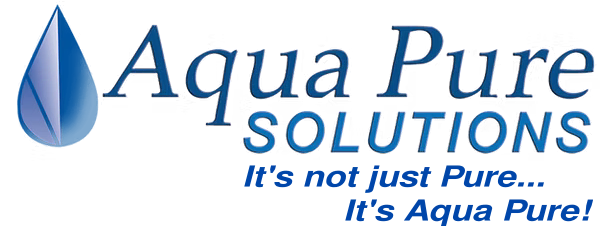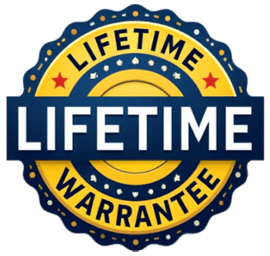
The Hidden Dangers of Pharmaceuticals in Residential Water: A Focus on Naples, Florida
In recent years, the presence of pharmaceuticals in drinking water has emerged as a significant public health concern. As residents of Naples, Florida, become increasingly aware of the potential risks associated with contaminated water supplies, it’s crucial to understand how these substances enter our water systems, their effects on health, and the steps we can take to mitigate these risks. This article delves into the complexities of pharmaceutical contamination in residential water, emphasizing the importance of effective filtration systems like the Palmetto Florida water conditioner reverse osmosis.
Understanding Pharmaceutical Contamination
Pharmaceuticals can find their way into our water systems through various channels, including human excretion, improper disposal, and agricultural runoff. When medications are consumed, the body metabolizes only a portion of the drug, with the remainder being excreted. This waste can enter wastewater treatment facilities, which are often not equipped to remove all pharmaceutical compounds effectively.
Sources of Contamination
- Human Excretion: As individuals consume medications, a significant amount is expelled through urine and feces. This waste can contaminate sewage systems, leading to the introduction of pharmaceuticals into water bodies.
- Improper Disposal: Flushing unused medications down the toilet or pouring them down the drain contributes to pharmaceutical pollution. Many people are unaware that this practice can have far-reaching consequences for water quality.
- Agricultural Runoff: The use of veterinary drugs in livestock can also lead to contamination. When rainwater washes over fields where animals are treated with pharmaceuticals, these substances can seep into groundwater and surface water.
The Role of Wastewater Treatment Plants
While wastewater treatment plants play a crucial role in cleaning our water, they are not always equipped to handle the complex array of pharmaceuticals. Traditional treatment methods may reduce the concentration of these substances, but they often fail to eliminate them entirely. As a result, trace amounts of drugs can persist in the water supply, posing potential health risks to consumers.
Health Implications of Pharmaceuticals in Water
The presence of pharmaceuticals in drinking water raises several health concerns, particularly for vulnerable populations such as infants, pregnant women, and individuals with compromised immune systems. Although the concentrations of these substances are typically low, chronic exposure can lead to adverse health effects.
Potential Health Risks
- Hormonal Disruption: Many pharmaceuticals, particularly endocrine-disrupting compounds, can interfere with hormonal balance. This disruption can lead to reproductive issues, developmental problems in children, and increased risks of certain cancers.
- Antibiotic Resistance: The presence of antibiotics in water can contribute to the development of antibiotic-resistant bacteria. This phenomenon poses a significant public health threat, as infections that were once easily treatable may become more difficult to manage.
- Cumulative Effects: Long-term exposure to low levels of various pharmaceuticals can have cumulative effects on health. The interaction between different drugs in the water supply is not fully understood, making it challenging to assess the overall risk.
The Importance of Water Quality Testing
Residents of Naples should prioritize regular water quality testing to identify potential contaminants in their drinking water. Understanding what is present in the water supply is the first step toward ensuring safety and health.
How to Test Your Water
- Contact Local Authorities: Reach out to your local water utility to request a water quality report. This report should detail the contaminants present in the water supply and their concentrations.
- Private Testing: For a more comprehensive analysis, consider hiring a certified laboratory to conduct private water testing. This can provide insights into specific pharmaceuticals and other contaminants that may not be included in municipal reports.
- Regular Monitoring: Make water testing a routine practice, especially if you rely on a private well or live in an area with known contamination issues.
Effective Filtration Solutions
Given the potential risks associated with pharmaceuticals in drinking water, investing in a high-quality filtration system is essential. One effective solution is the Palmetto Florida water conditioner reverse osmosis system, which can significantly reduce the presence of contaminants.
How Reverse Osmosis Works
Reverse osmosis (RO) is a filtration process that uses a semipermeable membrane to remove impurities from water. This technology is highly effective at eliminating a wide range of contaminants, including pharmaceuticals, heavy metals, and other harmful substances.
- Multi-Stage Filtration: The RO process typically involves multiple stages of filtration, ensuring that water is thoroughly purified before it reaches your tap.
- High Efficiency: Reverse osmosis systems can remove up to 99% of dissolved solids, making them one of the most effective options for ensuring clean drinking water.
- Improved Taste and Odor: In addition to removing contaminants, RO systems can enhance the taste and odor of water, providing a more enjoyable drinking experience.
The Role of Community Awareness
Raising awareness about the dangers of pharmaceuticals in residential water is crucial for fostering a proactive approach to water safety. Communities in Naples can take several steps to address this issue collectively.
Educational Initiatives
- Workshops and Seminars: Organize community events to educate residents about the sources and risks of pharmaceutical contamination. Providing information on proper disposal methods and the importance of water testing can empower individuals to take action.
- Collaboration with Local Authorities: Partner with local health departments and environmental organizations to promote awareness campaigns focused on water quality and safety.
- Engagement with Schools: Involve schools in educational programs that teach students about the importance of clean water and the impact of pharmaceuticals on health and the environment.
Proper Disposal of Pharmaceuticals
One of the most effective ways to reduce pharmaceutical contamination in water is through proper disposal practices. Residents should be aware of how to dispose of medications safely.
Safe Disposal Methods
- Drug Take-Back Programs: Participate in local drug take-back events, which provide a safe and environmentally friendly way to dispose of unused or expired medications.
- Household Trash: If take-back programs are unavailable, dispose of medications in household trash by mixing them with undesirable substances like coffee grounds or cat litter. This makes the drugs less appealing to children and pets.
- Avoid Flushing: Never flush medications down the toilet unless the label specifically instructs you to do so. Flushing can lead to direct contamination of water sources.
Government Regulations and Standards
While local communities play a vital role in addressing pharmaceutical contamination, government regulations also impact water quality. Understanding these regulations can help residents advocate for better protections.
Current Regulations
- Safe Drinking Water Act: This federal law sets standards for drinking water quality and requires public water systems to monitor and report on contaminants. However, many pharmaceuticals are not currently regulated under this act.
- State Initiatives: Some states have implemented additional regulations to address pharmaceutical contamination, including guidelines for wastewater treatment facilities and monitoring programs.
- Advocacy for Change: Residents can advocate for stronger regulations by contacting local representatives and participating in public forums focused on water quality issues.
The Future of Water Safety in Naples
As awareness of pharmaceutical contamination grows, the future of water safety in Naples will depend on collective action from residents, local authorities, and government agencies. By prioritizing water quality and investing in effective filtration solutions, communities can work together to ensure safe drinking water for all.
Building a Sustainable Future
- Investment in Infrastructure: Local governments should prioritize investments in water treatment infrastructure to enhance the removal of pharmaceuticals and other contaminants.
- Research and Innovation: Encourage research into new technologies and methods for detecting and removing pharmaceuticals from water supplies.
- Community Engagement: Foster a culture of community engagement around water safety, encouraging residents to take an active role in monitoring and improving water quality.
Conclusion
The presence of pharmaceuticals in residential water poses significant risks to public health, particularly in areas like Naples, Florida. By understanding the sources of contamination, advocating for proper disposal methods, and investing in effective filtration systems like the Palmetto Florida water conditioner reverse osmosis, residents can take proactive steps to protect their health and the environment. Together, we can work towards a future where clean, safe drinking water is a reality for all.

